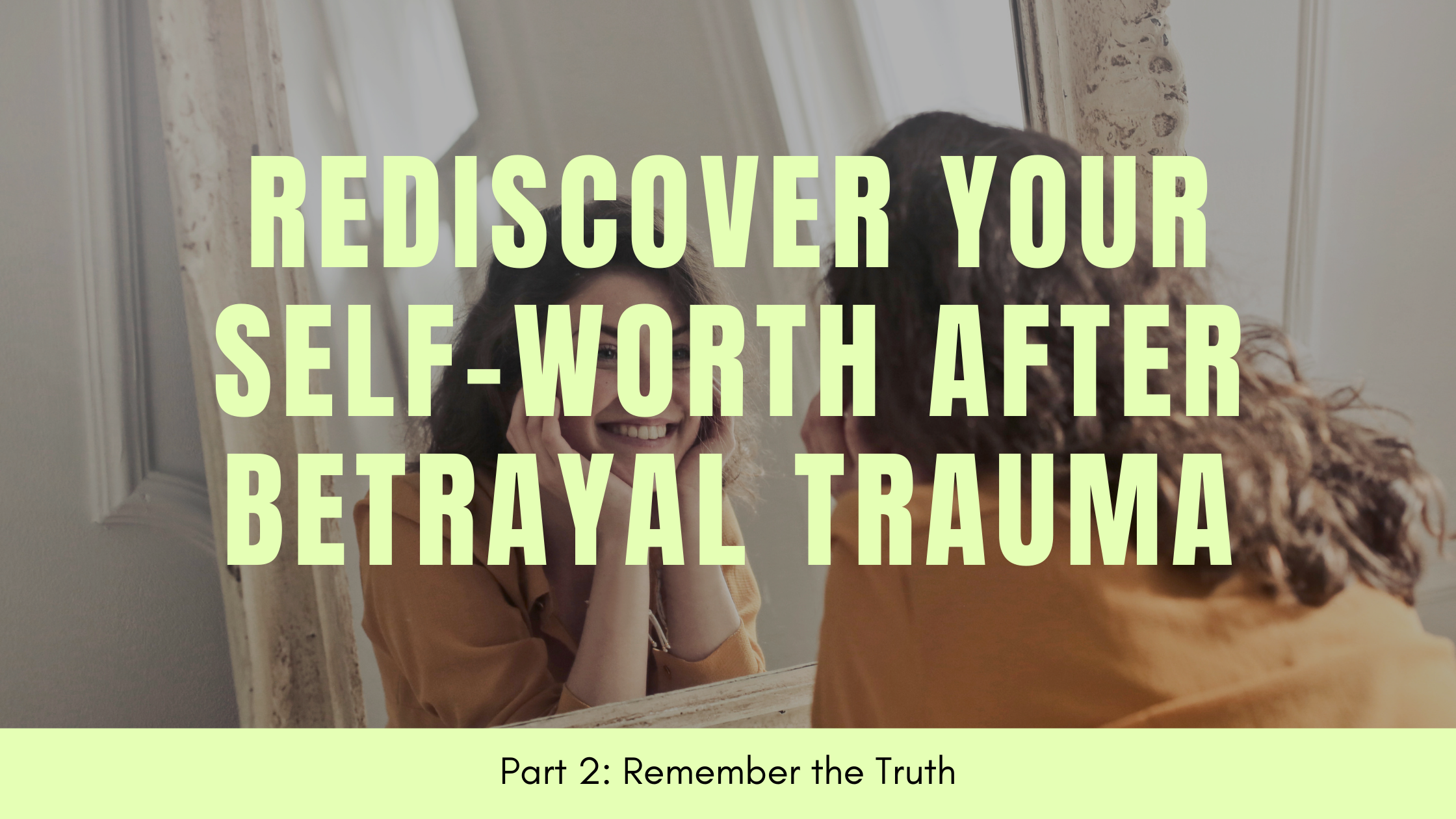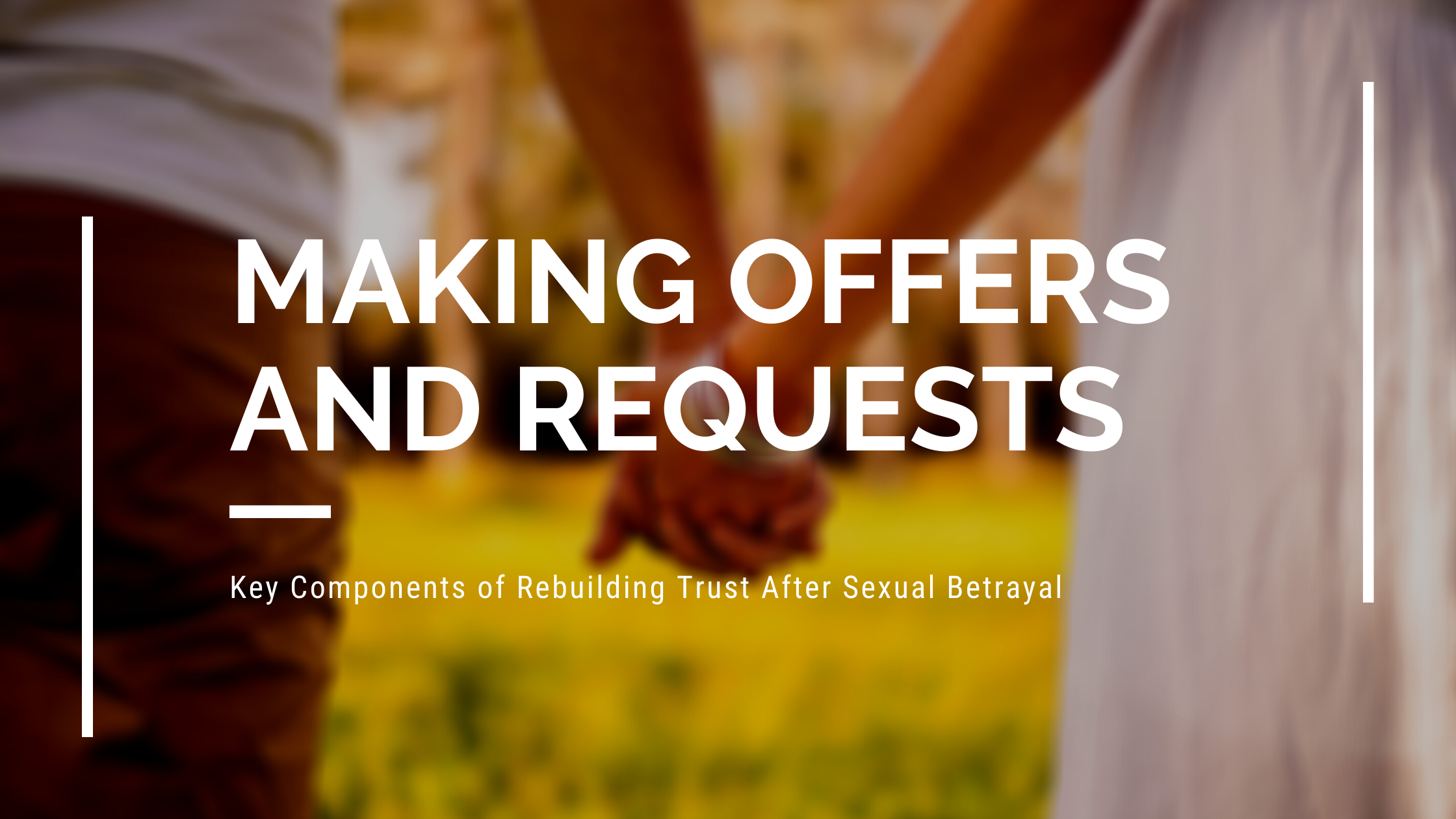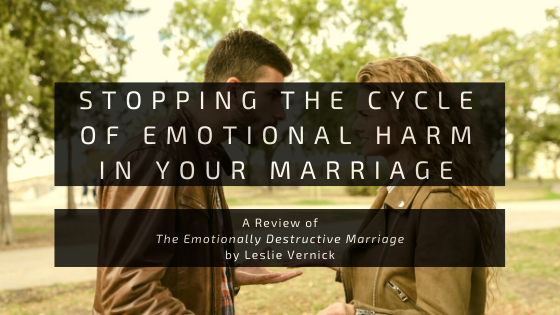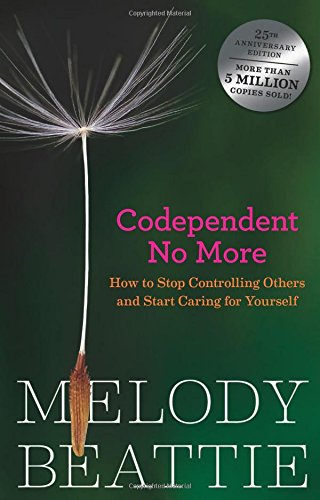When you’re caught up in self-doubt and questioning due to the recent discovery of your partner’s sex and love addiction, the line between what is real and what isn’t can be fuzzy at best. Many of the explanations running through your mind affect your sense of self-worth as you attempt to understand what is impossible to understand.
In Part 1 of this self-worth series, we identified thoughts and behaviors that are associated with low self-worth as a result of betrayal trauma. In this article, we’ll cover some statements of truth that combat the swirling self-doubt and give you a supportive reality check.
What is true?
When you’re being pummeled by these insecurities, it can help to remind yourself of some affirmations of truth about yourself and your partner’s addiction to ground you in reality.
Your emotional response and reactions are normal.
You’ve experienced an intense trauma: survivors of betrayal trauma often demonstrate similar symptoms to those who have experienced sexual trauma or assault. The feelings that come up in response to the betrayal are a reflection of the seriousness of the offense. Even though you might feel crazy, what you’re experiencing is to be expected from the pain you’ve sustained.
The addiction isn’t about you. It is not your fault.
Sex and love addiction typically develops long before you and your partner meet. It originates as a form of coping with distressing feelings or discomfort. Most addicts have a history of past trauma or abuse, which can be sexual in nature but also could be physical, emotional, or verbal. Addiction developed as a maladaptive way to cope with stress or pain caused by that trauma or abuse.
What if your relationship had problems beforehand and you can connect the addict’s desire to escape to the tension in the relationship? In this case, your partner still had a choice of how they would cope with that tension. They did not have to choose addiction, but they did so because of a preprogrammed propensity that they had fostered through early experiences.
Addiction is never satisfied, so you can never be “enough” for addiction.
When you begin to question whether you weren’t sexual enough for your spouse, remember that no amount of sex will fully satisfy a sex addict. Many sex addicts believe that having more sex will solve their problems, but it never does. Addiction is always in search of more and is never satisfied. The concept of tolerance in addiction shows that what was once enough to provide a “high” eventually loses its intensity and the addict continually needs more to achieve the same effect.
Addicts are masters of denial and deception.
Addicts have years of practice hiding their behaviors so skillfully that no one could tell they were acting out. They use techniques such as emotional manipulation and gaslighting to mask their behaviors and self-protect. They will go to any lengths to protect their addiction, often acting in what seems to be contradictory ways to their proclaimed love for you as their partner. They create an atmosphere to protect the addiction, whether consciously or subconsciously. It’s crazy-making for you, but the smokescreen they put up explains why you couldn’t see it.
That being said, prior to discovery, you may have had moments when you felt like something was off or that your gut was telling you something was up. Typically your concerns were met by your addicted partner with further denial and minimization, which may have led you to dismiss your intuition or question your reality.
You are worth spending time with.
In the aftermath of the discovery of betrayal, betrayed partners often feel isolated and alone. You might be hesitating to contact friends or loved ones, which only adds to those feelings of isolation. In addition, your insecurities may cause you to question your value in relationships and fear reaching out for support. Believing that you are worth spending time with can help empower you to seek out your friends and family who can be supportive and safe during this time.
Beyond relationships with others, spouses of addicts lose a sense of their personal identity, whether that’s due to caring for children or caring for the addict. Spending time with yourself becomes immensely important to reclaim yourself and your personal identity. Learn who you are. Spend time getting to know yourself as if for the first time because you are worth getting to know.
Your worth is not defined by external achievements or accomplishments.
When you’re still reeling from the discovery of your partner’s addiction, you probably weren’t the most productive person. The impact of trauma can throw you off all parts of your daily routine. Especially if you’re already someone who deals with perfectionistic tendencies, you might be overwhelmed by a sense of inadequacy as you grapple with the crushing impact trauma has on your life.
Emphasizing external validation as the primary place you find your worth and value will consistently set you up for failure. The solution is to recognize that your value and worth is inherent and cannot be influenced or taken away by what others think of you.
The only person you can control is yourself.
Excessive focus on the addict and their behavior can lead to extreme swings in mood and thought patterns because addiction can be so crazy-making. Instead, focusing on what’s within your control (your own thoughts, behaviors, choices, and emotions) and caring for those parts of you can help you to detach in a healthy way from the chaos of your partner’s addicted world. This focus on yourself allows you to align your actions with your own value system, and it acknowledges that you are worthwhile enough to receive care and growth.
Addicts live a double life and compartmentalize their addictive behavior.
Like the classic Dr. Jekyll and Mr. Hyde, addicts often completely separate their addictive acting out behaviors from their normal life. They dissociate emotionally from their “normal” life while acting out, often dealing with memory fog or fuzziness about specifics of their acting out behaviors afterward. Your addicted partner could truly love you even while they were active in their addiction, despite their actions communicating something entirely different.
In our third and last installment of this self-worth series, we’ll explore what it means to empower yourself to take actions that affirm your self-worth.
























